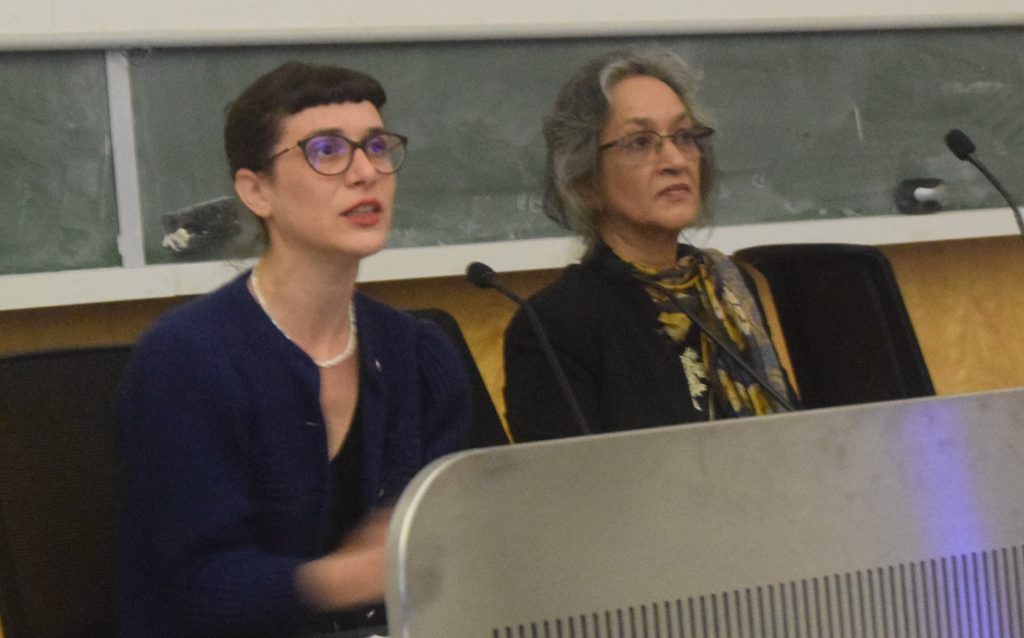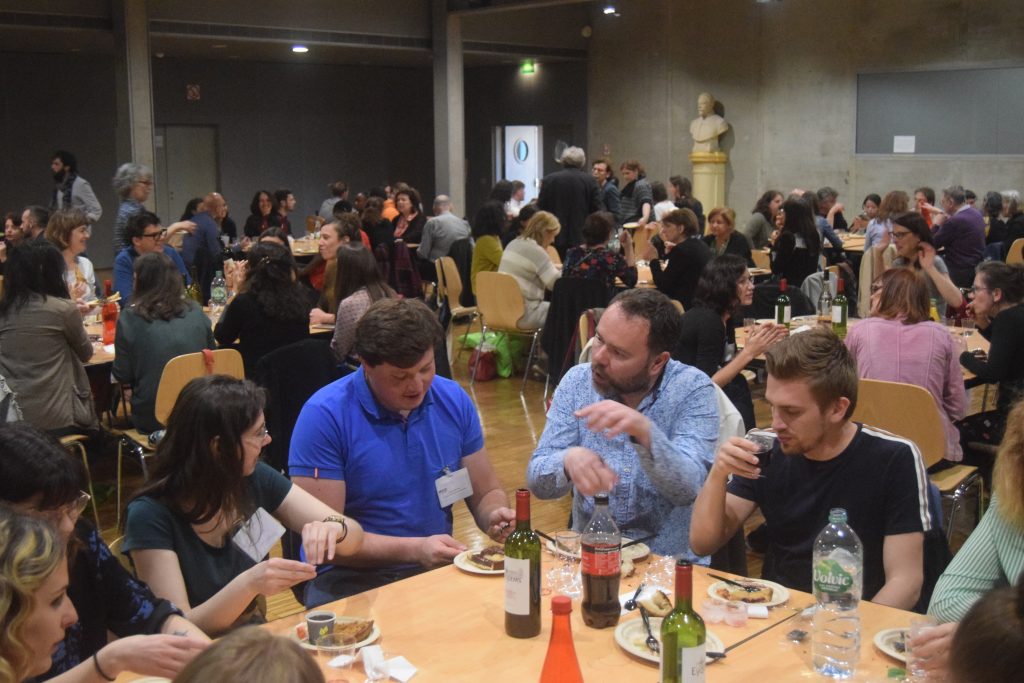By Josette Combes
On 15, 16 and 17 May, the Réseau Interuniversitaire de l’Economie Sociale et Solidaire held its conference, this time hosted by the Université Paris – Est Marne la Vallée. This was the nineteenth edition of this event, which brings together SSE researchers and actors every year, this year under the title SSE of culture, culture of SSE. More than 200 participants were able to exchange ideas within a renovated university, in very good conditions of comfort and accompanied by a team of staff and students of the Chair of Social and Solidarity Economy, under the kind responsibility of Hervé Defalvard.
The opening conference was given by Farida Shaheed, Executive Director of the Shirkat Gah-Women Resource Centre (Pakistan) and former and first UN Special Rapporteur on Cultural Rights. Laura Aufrère, who initiated this invitation, introduced Farida and stressed the importance of her work in understanding the multiple dimensions of cultural rights.

Farida Shaheed, while saying she knew little about SSE, said in the preamble that respect for human rights is an unfailing foundation of an economy that claims to be inclusive. Cultural rights allow the development of specific worldviews and the resulting ways of life. According to the United Nations definition, it is “the right of everyone to take part in cultural life and to benefit from scientific progress and its applications”. Culture is never static, it is always evolving. Similarly, no community can be referred to a single culture knowing that there is always a dominant culture that power imposes to the detriment of so-called minority cultures, including those of women, youth, ethnic minorities, etc. Cultural rights include the right to criticize, contradict and reformulate the parameters of the dominant culture.
According to Farida, one cannot talk about cultural rights without addressing the issue of gender. While women play a fundamental role in cultural transmission, their influence in decision-making is limited and rules are defined little or not at all by women. They face different forms of violence for acts as simple as choosing whether and with whom they want to marry, how to dress and where they are allowed to go. When they violate these rules, enacted without their advice, they are sentenced on the pretext of treason. This is why it is urgent to change the paradigm and place women on an equal footing in their role as spokespersons for what must be transmitted or abandoned from a culture undergoing renovation. Similarly, young people or the marginalized must regain their right to expression and influence.
In her presentation, Farida Shaheed also addresses the issue of access to technologies and the problem of transferring the results of research conducted in public laboratories to the public interest. It also highlights the danger faced by artists whose expression can be censored because it is perceived as threatening to the cultural status quo and thus the right to artistic expression is linked to the right to peaceful assembly, freedom of association including the right to form trade unions, the right to benefit from the moral and material protections related to their production and the right to leisure.
There is also a real demand for the restoration of historical truths that have been abused by “official history, especially for the peoples who have suffered colonization. In conclusion, Farida emphasizes the importance of respecting diversity by using the metaphor of the damage caused by monoculture in agroecology. Human ecology needs space and time for multidimensional exchanges.

Two upcoming events were announced in plenary: the World Social Forum of Transformative Economies in May 2020, with which RIUESS will be associated, and the 2nd International SSE Forum “Co-constructing reciprocity in North-South relations”, which will take place in Carthage (Tunisia) on 15-17 April.
There were 10 workshops or 30 contributors in two sessions, according to 5 main axes: the modes of organization of SSE in and through culture, SSE cultures between pluralism, isomorphism and new paths, alliances between culture and SSE, interculturality in SSE, minority, diversity at the crossroads of SSE and culture. (contributions will soon be available on the website as well as on socioeco.org.)
The round table moderated by Patricia Coler (UFISC) Culture and Territory examined the place of local agreements in the dynamics of territories.
Finally, the students had organized the gala evening with film screenings and music for dancing, a very cheerful evening. The twentieth meeting is scheduled for May 27,28,29 2020 in Clermont-Ferrand.














